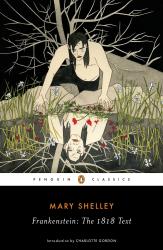
Frankenstein, a fictitious novel based Europe, details the account of a genius named Victor Frankenstein who creates a beast out of dead body parts. The beast then goes on to haunt him and kill everyone who Frankenstein loves. Frankenstein tracks the beast into the mountains and eventually speaks to him. The beast pleads Frankenstein to create a female beast, to which Frankenstein, comprehending of the horror that a lineage of beasts would survive, declines. The beast vows to kill every last one of Frankenstein's affections, and he does. Frankenstein is enraged and dedicated the rest of his life to tracking and killing the beast. The chase ends in the Arctic, where Frankenstein eventually dies. The beast sees his death and, with no more hope for a future mate, is overcome with grief.
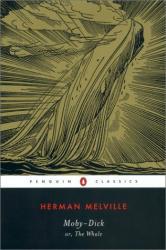
I, like most people, got wildly bored reading this book. Even then, it's one of my favorites. Moby Dick is a long and treacherous journey not for the faint of will, but lying at the end of the mud-covered path is a handsome bounty. For me, the ending of Moby Dick justified the means. Sprinkled throughout are interesting and bizarre chapters (and wise quotes on sleeping with drunken cannibals), but I believe the impact of the ending cannot be achieved without Moby Dick's arduous length. The hundreds of pages allow the reader to spend a massive amount of time with the characters (even if it's just Ishmael) and grow to appreciate the ship. Without that, the ending would fall miserably flat. So, despite the time it takes to read Moby Dick, the famous tale of a captain's monomania is one told beautifully.

No Longer Human is a cultural phenomenon, widely known as the second most bestselling novel in the history of Japan. Within, Osamu Dazai explores the life of a man who feels that he has never been a part of humanity, and his desperate strivings to find a piece of happiness in a life full of terror and vice. The timeless, existential themes of the novel will haunt the reader past the last page.
I chose to read this book because I'd seen a lot of people all over the internet praise it as the saddest book they'd ever read. There are about a thousand videos and essays and think pieces about the depressing nature of this book, and how it can devastate and eviscerate emotionally. Weirdly enough, I don't see it. The book is definitely very sad, but to me it didn't extend very far beyond the other grimly written books about very sad people with very sad lives. However, the psychology of the protagonist definitely sets the book apart. Unlike other books of the same nature, this book cuts to the bone by showing the terrifying underbelly of humanity. The protagonist is paralyzed by fear because he comprehends what many of us forget: that we are at all times surrounded by our own apex predators. Each of us has our own deep desires that could stir us to violence at any given time. We lie and cheat and steal to get what we want, effortlessly wearing masks that can obscure our entire character and can last a lifetime. The protagonist isn't like other antiheroes of hardened books about the horribleness of humanity. He doesn't accept it, or rail against it. He is very much afraid of it, and does everything he can to get out of its way. The protagonist's perspective is also interesting in the way it views humanity. The detachment of the central character is clinical, and portrays the characters in an alien light. He is scared of humans, but he also doesn't understand them. He sees all hunger and desire as something strange, and he wonders how people can be so insincere so easily. But despite his abject horror of humanity, the protagonist is slowly transformed into everything he despises and cannot understand. Perhaps the most fascinating part of this tale is how the protagonist is dragged, slowly but steadily, into the grips of humanity's vices and horrors.
Despite the intriguing nature of the protagonist's psychology, I didn't find the rest of the book as interesting as I thought I would. I was likely just disappointed that after all the build up, this amounted to another very well done, very sad bildungsroman in the vein of Catcher in the Rye or Little Friends. There's also issues with the way the writer portrays women, but since everyone in the book is fairly dehumanized it doesn't bother me as much as I thought it would. All in all, No Longer Human is a fascinating journey through the most base natures of humanity, all through the eyes of a man who feels disqualified from being human. I'd recommend this to someone who wants something dark and strangely fascinating. I would not recommend this to anyone who is anywhere close to being in a bad place, or anyone who got annoyed by Holden in Catcher in the Rye. This guy is ten times worse.
Reviewer Grade: 12
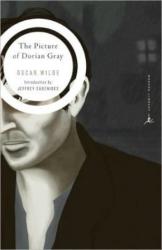
As a lover of writing, poetry, and pretentious philosophical tangents on the measurements of good art, I was bound to enjoy Wilde's only novel. The Picture of Dorian Gray is a beautiful tapestry of tragic corruption and its devastating effects. Albeit at times Lord Henry seems to ramble on about entirely uninteresting subjects, the overall experience of the book is short and sweet. The prose is flowery and elegant; the interactions between characters are brief but natural. Major character development occurs off-screen, which was disappointing, but within 160 pages one can only fit so much. Ultimately, I greatly enjoyed the ride, and The Picture of Dorian Gray has cemented itself as one of my favorites.
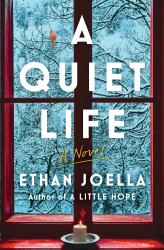
A Quiet Life by Ethan Joella is an emotional, heartwarming story about human connection. Joella’s story tackles grief and loss, all the while remaining light-hearted and hopeful. A Quiet Life takes on the perspective of three different people, all struggling with their own hardships and trials. Chuck, an elderly man mourning the death of his wife, must decide whether or not he should venture back to their vacation home for their yearly trip. The pain is too much to bear, and imagining himself being there alone is heart wrenching. Ella, a single mother working a newspaper job, is trying desperately to find her missing daughter. Kirsten works at an animal rescue and tries her best to serve the community. However, after the quick and tragic murder of her father at a convenience store, Kirsten can hardly find the light in life again. A Quiet Life shows the intricacies and hardships that come with loss, all the while connecting every missing piece, and showing us how togetherness is what keeps us afloat.
(Reviewer Grade: 12)
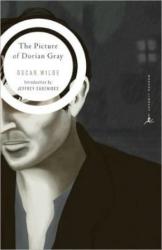
At first, I only picked this book as a classic for school, but I quickly learned it's a classic for a reason. I'd known of the general plot of the novel where a portrait reveals the ugliness of the inside of a man while he remains young, but the way it's written and described makes the full story. The story starts with painter Basil basically putting so much work and devotion into a portrait of Dorian Gray, the painting comes to life. Dorian wishes to stay forever young, and the painting reflects his evilness (vanity, etc.). I enjoyed the sense of mysticism and how everything connects to the theme of appearances are not what they seem. Dorian looks beautiful, but his actions (the thing that makes a person) are grotesque and horrid. The gothic fiction genre is reflected by the dark evilness of Dorian's actions and the magic of the portrait. This book is my favorite class I read this year and the plot surprised me with the characters always returning and a sense of incompletedness when characters leave. If you're looking for a medium-read classic with thought-provoking ideas, then this is for you!
Reviewer Grade 12
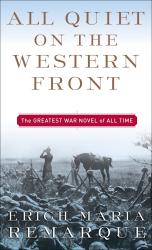
All Quiet on the Western Front by Erich Maria Remarque can solely be described as an ingenious masterpiece. The book, a historical fiction novel, was written in 1928 about German soldiers' experiences during World War I; Remarque used his experiences as a german soldier to accurately portray the terror of war. The main characters, Paul Bäumer, Albert Kropp, Franz Müller, and Ludwig Behm, are remarkably realistic and, throughout the book, go through changes caused by the nature of war, essentially turned into humans run by animal instincts. Throughout the book, Remarque ripes away any possible notion of romantic ideas relating to war and perfectly encapsulates the true terror of war. Overall, I wholeheartedly believe that everyone should read this masterpiece.
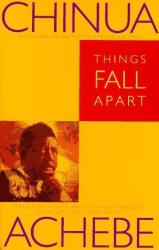
Things Fall Apart by Chinua Achebe is considered a literary masterpiece, with its unique perspective on colonization that isn't always told. Okonkwo, the main character with three wives and the memorable reputation of a great wrestler, has a great fear of losing any part of this status and ending up like his father. This fear is realized when Okonkwo is exiled (for an ironic crime) and returns to find his community overrun by Christian missionaries. They bring a seemingly-noble message of salvation, but it is only a matter of time before blood is spilt. Learning about Ibo culture through this book was a really cool experience, so I don't regret reading it. But, why is it that "classics" always have to include raging misogyny? Okonkwo almost constantly beat his wives, and despite this technically being historically accurate, I found the repetitiveness to be unnecessary. Despite this, Achebe's use of language, such as proverbs to create a story that feels like a fable, was something that I haven't seen before. Gaining a new perspective throughout reading Things Fall Apart was an experience I think everyone should have.
Grade 12
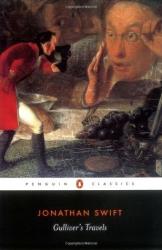
Part of the reason I rated this book low is because I had high expectations. I read an abridged version as a kid and I thought the general story was cool. Part of the reason I rated this book low is because Swift fills the reader's head with unnecessary details until important plot points are lost in the middle of description paragraphs. The events that take place in Gulliver's Travels are interesting, sometimes clever references to 19th century politics and general social commentary: Gulliver passes through a variety of islands with caricatured citizens. Although I do not expect Gulliver or the citizens of these islands to be developed characters, as their only purpose is to serve as a means to tell the story, the intrigue of the plot dissolves when paired with Swift's writing style. Swift is a meticulous writer who insists on heavy descriptions of every detail and, consequently, there is little to no stylistic separation between key points in the story and the personal life of a particular citizen. Gulliver's Travels is also a relatively short read at around 300 pages, so it is fast-paced compared to other books written in similar detail, which further muddies the plot. The dialogue in this book is also near nonexistent; I can't recall a single line. When Swift means to relay information between characters, he will most often do so in paragraph format. As someone who usually enjoys classics, I am disappointed to say I really only valued the skeletal plot outline rather than the book itself.
Grade: 11
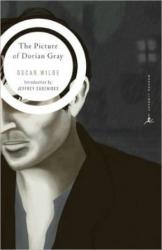
Imagine what could happen, if people possessed magic mirrors that reflected not their faces, but their souls? Dorian Gray, from the novel by Oscar Wilde, gets a chance to fully experience it.
An artist, Basil Hallward, paints an incredibly realistic portrait of an even more incredibly handsome young man. As he’s still innocent, the picture reflects just his appearance, but later, when Dorian starts doing cruel and ugly things, the portrait begins changing too. Every sin, every crime against the other human reflects on the face on the canvas, adding more and more ugly wrinkles, spots and ulcers. His own face, however, stays unaltered, always fresh and young. The portrait shows not what he looks like, but what he truly is. Finally, when Dorian kills the artist, he reveals the picture and the face of an old disgusting man on it.
The entire transformation proves what a high price one has to pay in order to realize his wish to stay young and attractive all the time. Under the influence of his old friend, Dorian loses his life guides and devotes his time to looking for new enjoyments. He does not understand that true beauty comes from the inside. It’s not necessarily visible. It’s not on your face, it’s in your thoughts, words and actions.
The novel is written in magical realism, so even the most incredible plot turns feel like something natural. It involves from the first page and makes the readers go through all the transformations together with the main characters.
Reviewer Grade: 11
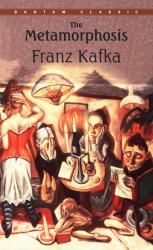
One morning he woke up and discovered himself being a beetle. Not the best beginning of the day for sure. The worst part was that he had to live in the insect's body till the end of his life.
The immediate problems that Gregor faced, such as being unable to get out of his bed, would’ve perhaps been amusing, if he was not afraid of his family’s and boss’s reaction that much. “I will be late for my train to work!” I wish that was my biggest worry if I turned into a beetle. Panic, helplessness and pettiness that he exuded were so strong that I could feel it surrounding me. Written in Kafka’s original style, all the emotions and perceptions are strong and relatable, which makes even the most impossible action seem realistic.
The novel starts hurting, when Gregor notices how strongly his family’s attitude towards him has changed. They all are disgusted with a new creature in Gregor’s bedroom (which we can’t really judge them for). Grete, his sister, seems to be the only one who still believes that her brother’s mind and soul are captured in the beetle’s body and tries her best to take care of the huge insect. As the time goes, Gregor’s behavior changes a lot. His thoughts become more of beetle’s as well as his tastes. Having some rotten food for dinner? Delicious!
The way that he describes the new vision of the world around him, opens a lot of hidden information and evokes true sympathy and sorrow for his fate.
The novella leaves a lot to think about. The transformation that happened to the main character can be interpreted in different ways as well as the changes that his family members go through, trying to adjust to a new life with a human-size beetle living in their house.
Metamorphosis is a great choice for those who feel like they’re living an insect life and their routine is just a big dung ball that they have to push forward all the time.
Reviewer Grade: 11
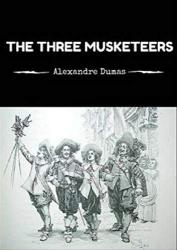
Despite its lack of general theme, Dumas' The Three Musketeers is a beloved classic. The story follows a young man D'Artagnan as he serves under M. de Treville, the head of the French king's musketeers (Athos, Porthos, and Aramis). As he spends more time with the musketeers, D'Artagnan is caught up in the convoluted politics of the king and jealous cardinal. Somehow, however, in the epic tale of adventure, companionship, romance, and betrayal, Dumas' message is lost to the fast-paced plot. His use of dialogue is masterful in creating realistic suspense between characters; not in all 600+ pages is there a dull moment. Overall, however, The Three Musketeers is best read for an interesting story and nothing else. The main cast is well-developed and serve as contrasts to each other. Although the plot itself is well-constructed, the events lack any greater relationship to each other beyond causation. When I picked this book up, I expected the adventure to follow some sort of formula to parallel D'Artagnan's personality; his personality, however, has little impact on the general plot. Dumas' talent in diction and ability to tell a story is evident, and The Three Musketeers was an enjoyable read, as long as you know what to expect.
Grade: 11
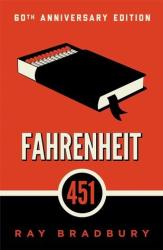
451͒ Fahrenheit is the temperature when paper starts burning. Guy Monteg knows it for sure. He’s a fireman. However, his job is not to put out the fire, but to make it and burn the books. He likes his job, but there is something that he hides from everyone, including his wife.
From every fire, Guy saves a book. In his society, books are forbidden, as they are considered to make people unhappy, evolving complicated emotions and making the readers think. No books means no worries, but a careless life, full of joy and simple entertainment.
One day, Guy Monteg decides that he does not want to live like he used to anymore. He finds a former English professor and asks to teach him to understand what he reads about. Together, they make a plan to save more books in the hope that war will destroy the existing system that they have to live in.
But any secret becomes clear, and the next night Guy gets an order to burn his own house. He destroys it with a flamethrower, as well as his captain, co-workers and the Mechanical Hound.
Monteg escapes. He does not know though, that after all the dangers on his way, he will finally find his destination and meet those whom he will belong to.
It may be hard to feel, but the book is sharp and straightforward. Through the adventure in a fictional universe, Ray Bradbury shows us what might happen, if humanity keeps moving in a direction that will only satisfy basic needs and bring momentary pleasures. I’m sure, some of us can already recognize ourselves with shame in Beatty or Mildred. We’ve already made that first step on the path to the world, where people burn books. This dystopia teaches us that we can always make a difference in the world and change our lives the way that we believe is right. There will be those who will try to destroy you, but there will also be those, whom you will be able to rely on.
The novel creates a tense engaging atmosphere, where you can smell threat in the air and hear the chase behind your back. It does not let the reader go till the very end and stays in mind days after.
Reviewer Grade: 11
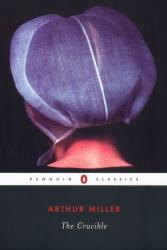
Hysteria, spreading throughout Salem, Massachusetts in the 17th century. Teenage girls, being accused of witchcraft for dancing in the woods. A puppet with a needle that can cost someone’s life. Agreeing on execution in order to protect the good name for your family. Mass trials on people being suspected of doing magic. Sounds crazy? Welcome to the world of The Crucible.
The play by Arthur Miller takes us to Salem in a period of witch trials. Everything starts pretty prosaic: a girl named Abigail wants to get love from a local farmer, John Proctor. As it often happens, she finds a love potion the easiest way to reach the desirable goal, however, she, her friends and the family slave Tituba get caught on doing this ritual late at night.
Nobody wants to be punished. Nobody will believe a slave over his own daughter or niece. Considering these two statements, Abigail decides to avoid a punishment by accusing Tituba and the entire list of other women in a town of being witches.
And here is when things start to go heels overhead. Like a huge snowball that captures everything that is on its way, panic enhances more and more people around. Men and women are being executed for no true reason. Even an expert in demonology is invited to take part in the case. And in all this chaos Abigail makes another attempt to get a chance for a future together with John Proctor.
The action develops dynamically in the play, and the characters add more tension to the plot with their bright personalities. You can’t stay indifferent. You either love or, more likely, hate them. A lot of situation are ironic and absurd, however, the play tastes bitter, when you realize how many people had to struggle because of someone’s stupid wish and lack of responsibility.
The book refers a lot to the time of McCarthyism, which had impacted the author’s life in particular. It makes a strong impact on the audience, especially, in the end, and leaves the readers with a lot of questions: Do people change? Is reputation worth sacrificing your life? Whom to believe and what to deny?
Reviewer Grade: 11

An attempt to create an independent sovereign state, liquidate domestic and foreign enemies and get rid of vestiges of the past, made by… animals. The only fact of animals ruling and managing their own lives sounds absurd enough, but what if under the masks of pigs, horses and dogs real historical figures are hiding?
George Orwell showed brightly the allegorical reality of totalitarianism and communism in his novel Animal Farm. A fairy tale for grown up readers, the book offers an opportunity to observe the story of animals who tried to get independence from their owner and build a society where everyone’s needs and desires would be equally satisfied (sounds a little utopical, doesn’t it?)
Inspired by the Old Major, two pigs, Napoleon and Snowball, supported by all the residents of the farm, carry out a coup d’etat and banish the farmer Mr. Jones. They take the lead and create the laws of the newly created state, the most important of which is “All animals are equal”. However, as the time flows, it turns out that ruling a society is not as easy as it seems to be, especially if at the same time you are trying to benefit from the power that you possess. The animals have to go through propaganda, repressions, socialist competition, ideological pressure and several other social and political changes. Most of them believe their government blindly, and only a few trust their own eyes more than the media. Napoleon, now the only ruler of Animal Farm, discovers that fear and lies are not the worst tools to use, if you want to keep a state in order, especially when the majority of the population consists of sheeps. He goes father and father from where he began and, like many leaders before and after him, becomes a tyrant trying to keep his position and privileges. At the end, he brings the animals back to what they tried to destroy: a totalitarian system where one stands above everyone else. “All animals are equal, but some animals are more equal than others”, the new Commandment says.
The book is written in a simple language and the allegory and similes make the story easy to understand even for the younger readers. All the processes and events mentioned in the novel repeat one of the darkest and most tangled periods of history. But, shown on the example of animals, they make the readers wonder how people, who faced them in real life, could not notice that they were being trapped and fooled.
Compared to some other novels by George Orwell, Animal Farm is pretty easy to read. It would be a perfect choice for those who want to get a better understanding of political and historical processes and enjoy a fictional story at the same time.
Reviewer Grade: 11
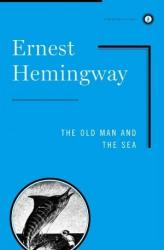
The story of Win and Loss, one of Ernest Hemingway’s most famous works, The Old Man and the Sea introduces us to a fisherman Santiago. He is old, but he has determination and a goal. He wants to catch his Big Fish. He does not give up even after eighty four days of failure and on the eighty-fifth day luck finally smiles at him. Big Fish is on the hook. Three days of confrontation between the fishermen and the fish reveal Santiago’s incredible inner strength and will power. But when he finally comes back to his hut, exhausted and barely alive, he’s left only with a skeleton of his dream and a poor illusion of a better life.
The deep symbols that the story contains can be interpreted in many different ways. Some of the readers may find the old man’s hunt as a waste of effort on a goal that is not worth risking his life. Others, however, will discover Santiago as their role model and an example of undefeatable human nature and endurance on the way to the dream. But this controversy and ambiguity is exactly what makes the book so unique and attractive to the generations of readers.
The language of the novella is typical for all Hemingway's books, simple and straightforward, however, this time the symbolic meaning is hidden under the coat of realistic story. It encourages the reader to think and reflect on the pages that he’s read and on his own life as well and find his own interpretation of the fisherman’s story.
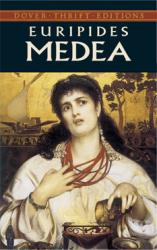
Medea by Euripides is a play about a princess in Greek mythology. She is betrayed by her husband when he weds another woman and Medea vows to take revenge. She plans to hurt everyone who hurt her, but by doing this she puts people who did her no wrong at risk. Will she end up getting revenge and living out her days or will she join the same fate that she curses down upon? I recommend this book to anybody who is into Greek mythology or would like to get into it. This is a fast read of about 50 pages.
Jaala 12
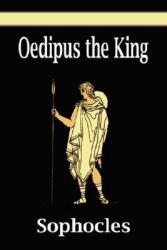
Oedipus the King by Sophocles is a Greek play that follows the tragedy and downfall of this King. He is presented by a messenger that a disease has spread across his land and he needs to save his people. He sets out in search of this issue, but slowly comes to the realization that this something is a someone within his borders. What if this someone who needs to be eradicated is one who governs it? I would recommend this book to anybody who likes Greek mythology or the adventure genre.
Jaala 12
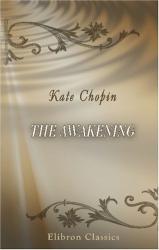
The Awakening by Kate Chopin is a fictional novel that questions what it is to be an independent woman in a male dominant society. Edna lives in the Creole society in New Orleans that values the idea of women being a housewife. Edna strays away from this ideal and attempts to break the boundaries of what women think and can do. Is Edna strong enough to break these barriers or will the barriers break her? I recommend this novel to anybody who loves twists and turns and what it truly means to be independent.
Jaala 12
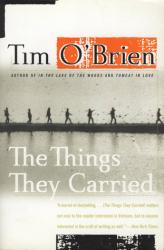
The Things They Carried is an interesting narrative about a group of soldiers as they navigate the horrors of the Vietnam War. Each chapter is fairly short and tends to have a lot of action or interesting commentary, so it was pretty engaging. What I didn't love, though, was the author's combination of realism and fiction. He used his own name as the main character, but experienced fake scenarios with people who never existed. It was sometimes frustrating, not knowing what was real or not. O'Brien was a soldier in the war, but he said that fictional war stories are a way for him to convey important messages of courage without reliving the trauma of his actual experiences. This is a unique genre, so it's worth a try if you like realistic fiction.
Grade 12

Breasts and Eggs, lengthened from its original version, is a breakthrough piece for Mieko Kawakami, but also for the literary world. Her masterful prose is able to capture the attention of any reader, and draw anyone into the worlds she creates. The book is centered around a family of low-income Japanese women, battling their way through life and facing poverty, the image of their bodies, each other, and their desires for the future. Each conversation is written as if it's taking place in the readers' living room, and each sense is captured on every page. Kawakami works through seemingly every contemporary issue effortlessly, putting each piece into place within the story, instead of unnaturally breaking the flow of her storytelling She plays with issues of fertility through a character whose journey should, on paper, be shocking and different than anything readers have seen, but does it in a way that makes it feel real and beyond possible. The book is so fantastic that it could be read in a day if readers can't make themselves put it down, but it would be a rollercoaster of a day.

Interpreter of Maladies by Jhumpa Lahiri is a collection of nine short stories about cultural differences. In each of the nine stories, the beautifully composed characters are taken through inspirational journeys, whether conflicts about romance, communication, cultural differences between India and America, or separation. Not all endings are happy, but a lesson can be learned from each story. It is a must-read book that challenges cultural differences and will transform a mindful reader's perspective. Overall, I would rate the book five out of five stars.
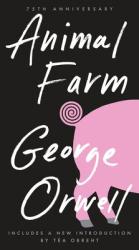
Animal Farm by George Orwell is a novel following a group of farm animals who want to topple their human farmer's regime, creating a society that is perfect for themselves. While Animal Farm starts off a bit ridiculous, using pigs and other farm animals as the main characters of the story, I think that Orwell using farm animals to explain the message of his story was actually very imaginative, and made the story much more intriguing and unique. Since Animal Farm's main theme is about revolution and the obstruction of democracy, I enjoyed analyzing the symbolism that was placed in the novel, seeing the hidden parallels between the farm animals and the historical events that were occurring during that time. I liked being able to link events from the story to real historical events, such as the communist movement, the Soviet Union, and World War 2. Personally, I think that Orwell's technique in linking his novel to these historical events by using only symbolism was very creative and was written in a very thoughtful and intelligent way. Seeing how some of the book events contrasted with historical events was very strange and interesting for me, and it made me wonder how Orwell could have even thought of linking the two subject matters by only using farm animals.
Overall, I would recommend this classic novel to anyone who is open to an interesting and thought-provoking read.
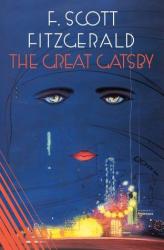
A classic novel about the "American Dream," and the qualms of social classes, this 1925 based story is centered around four main characters. Nick Carraway, Jay Gatsby, and Daisy and Tom Buchanan. This novel was written in a way, where all four of these characters come from different social classes and walks of life. We are given insight into the personal lives, fears, and secrets that each of these characters carries with them, and as we slowly begin to know all of these characters' stories, Fitzgerald immediately throws us for a loop. The Great Gatsby unearths every little dirty secret every character in this novel hides and turns all of our familiar characters into something much more sinister. The Great Gatsby speaks volumes on the importance and issues of social classes, and the so-called "American Dream." All in all, a highly renowned classic, The Great Gatsby lives up to its fame and delivers beautifully written lines and shocking twists.
Reviewer Grade: 11
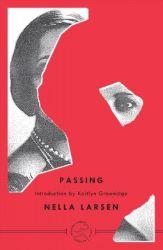
Passing by Nella Larsen is a classic novel following Irene Redfield and Clare Bellew. The novel follows the timeline of the Harlem Renaissance and delves into themes of 'white-passing' amongst the black community.
Irene, the narrator of the novel considers herself to be a very levelheaded, calm, thoughtful woman, who looks out for her children and is a perfectly attentive wife. Clare Bellew on the other hand is Irene's childhood friend, and her personality is much more colorful than Irene's. When Irene and Clare reunite after many years, we delve into their complicated relationship and clashing personalities.
Passing is a novel that illustrates what the standards of beauty really are and educates readers on the logistics of what passing of as white can mean for a black woman back in the 1920s.
I really enjoyed reading this novel, as 'white-passing' was something I wasn't super aware of, and barely even knew it was a phenomenon in the 1900s. Larsen also created a very interesting dynamic between Irene and Clare and crafted very realistic characters. I enjoyed reading Irene's inner monologues, as it's pretty rare to see an author build up very dynamic characters, that are also painfully human. I would recommend this book to pretty much anyone, as it contained lots of powerful messages and themes, without coming off as cliche or overdone.
Reviewer Grade: 11

In plague struck Italy around the 1350s, 3 young adult boys and 7 teenage girls as well as their servants hide out in various castles while telling each other stories to pass the time. Each of them has to tell one story per day. For each day there is a new theme decided by the"ruler" of that day. These themes include; Misadventures with happy endings,Tragic loves, Bawdy loves, Munificence, and Avoiding Misfortune with witty remarks.
Though this is a good and classic book it is not for everyone due to it having mature sexual themes, so if you do not like such things either dont read this book or stick to the days that arent about things like those... also watch out for Dioneo's stories because he can say a story on whatever he likes. Alltogether a good book if not for everyone.
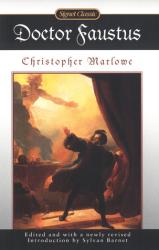
Doctor Faustus by Christopher Marlowe is an amazing study of enlightenment views on religion, morality, and social structure, all wrapped up in a fascinating tale of the supernatural. Doctor Faustus makes a deal with the Devil in exchange for power and knowledge, but, as a result, he constantly wars with himself. On one side, Faustus wants to repent his actions and avoid damnation, however, Faustus also is driven on by his greed and arrogance to pursue his dark arts and continue fulfilling his desires, visiting places such as the Papal and Imperial courts, leaving only after he has achieved his mischief. The story is amazing when considered within the historical context of its writing, the enlightenment philosophy and religious teachings show throughout the book, pitting the Old Testament views of damnation and repentance against the more forgiving views of the New Testament. I would highly recommend Doctor Faustus to those seeking to learn about the enlightenment and 16th century culture.
Harrison
Grade 12
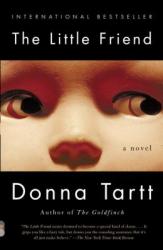
The Little Friend is a story about family, loss, remembrance, and childhood. It all rotates around a mysterious tragedy in the Dufresnes family, where the youngest boy, Robin, was found strangled and hung in a tree out back. Years later, his precocious younger sister Harriet is determined to find the killer. In her quest, she tangles with snakes and water towers and drugs and family trauma, all shown through the eyes of a bright and, for now, innocent child.
The reason this book gets a three is not because it is a so-so book, mediocre in all avenues but largely strung together enough to earn the title "Pretty Good". This book was fantastic. And bad. And thrilling. And boring. And gloriously written. And horribly structured. I read this because Donna Tartt wrote it, and I love her writing style. This style came alive in her book undoubtedly, but any future readers should be warned that the writing, and the characters, are the only things of substance in this story. The writing is prosaic and setting appropriate and beautiful and heart wrenching and perfect. The characters are so fleshed out and developed that when you're reading you can hear them breath. But that is it. The plot is nearly insubstantial, or at least insignificant. On one hand, I read this whole book and found no story of relevance. On the other hand, through the writing and the characters and the subtle morals and stories along the way, I was pulled through an entire book where I found no story of relevance. Would I recommend this? It all depends on you. If you want a story that all ties up loosely and leaves you happy and fulfilled at the end, I would say no. But if you want a tale that is so realistic and magical that you can't take your hands off the strange, wonderful pages, then I would say go for it. All in all, this book earns three stars for being nearly incomprehensible, and yet, one of the most meaningful books I've ever read. I loved it, and I will never read it again.
Reviewer grade: 11
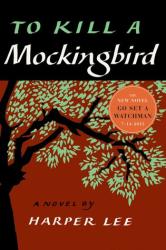
To Kill a Mockingbird by Harper Lee is a novel about Jean Louise Finch (Scout), living through her father Atticus' controversial decision to defend a black man in court. Along with experiencing the tribulations of racism in her home town of Maycomb County, Scout, her brother Jem, and her friend Dill explore the curiosities of the town and investigate the mysterious Boo Radley. The plot gave me excitement to continuing reading, and the joining of the two plots at the end created a perfect ending to the story. I thought that the book was really good due to the knowledge that was gained about the history during the Great Depression and the progression throughout the book that helped develop the main character. This was a school required book, but I would definitely recommend it to readers in high school and above.
Reviewer Grade: 9
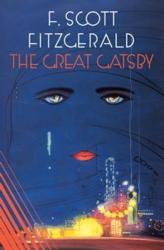
F. Scott Fitzgerald's "The Great Gatsby" begins with a straightforward introduction to its main character and narrator, Nick Carraway. Nick fancies himself a man of high morals and while he does not always succeed, he tries his best to adhere to his principles at all times. Nick comes from a prominent family in a middle western city; however, after fighting in the Third Infantry Division during World War I, Nick tires of the monotony of the Midwest and goes east — to New York — in order to learn the bond business and in pursuit of more adventure. Nick settles in West Egg, a village that is described best as housing those who are "new money," and is a direct counterpart to East Egg, home to New York's most elite. It is in New York that the we are introduced to Daisy Buchanan, Nick's cousin; Tom Buchanan, Daisy's husband and Nick's former schoolmate; Jordan Baker, the Buchanans' close friend and renowned golfer; and finally, to Jay Gatsby, Nick's neighbor and the titular character of the novel. Nick becomes entangles within the affairs (both literal and figurative) of these characters, as both his fascination and friendship with Gatsby grow.
At face value, "The Great Gatsby" may appear almost to be a soap-opera, but in truth, it is the very opposite. Much like its characters, beneath its shimmering facade, "The Great Gatsby" houses profound and poignant messages and themes — about societal roles, the ever-elusive American dream, and human nature.